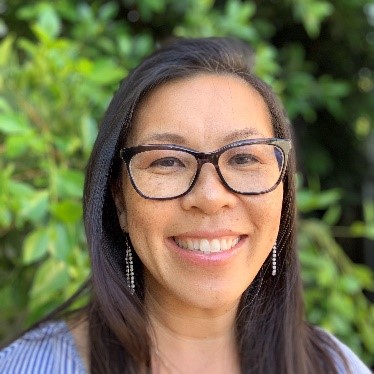Find a CBT Therapist
Search through our directory of local clinicians.
Anna Lau

Mentor Spotlight
ABCT’s Spotlight on a Mentor program aims to highlight the diversity of excellent research mentors within the organization’s membership ranks. Our goal is to spotlight both promising and accomplished mentors across all levels of academic rank, area of specialization, and type of institution.
Dr. Anna Lau is a Clinical Psychologist and Professor of Psychology and Asian American Studies at the University of California, Los Angeles (UCLA). Dr. Lau’s translational research on risk and protective factors for youth in immigrant families and her identification of racial disparities in youth mental health services have informed her efforts to study the implementation of evidence-based practices in community settings. Her research has been supported by the National Institute of Mental Health. Dr. Lau trains doctoral students in delivery of evidence-based psychotherapy for youth and teaches graduate and undergraduate courses related to Asian American Mental Health and the Psychology of Diversity. Dr. Lau is dedicated to inclusive excellence in higher education and is the Vice Chair for Graduate Studies in Psychology, has Chaired the Academic Senate Committee on Undergraduate Admissions and Relations with Schools, and is a member of the Asian American Studies Center Faculty Advisory Committee and Co-Chairs the Life Sciences Diversity Advisory Committee.
Response:
I’ve been blessed to have many wonderful mentors at every stage of my career. I had not one but two great advisors on my undergrad thesis, developmentalists Phil Zelazo and Charles Helwig. I learned that hatching an idea that integrated two areas of inquiry was a fun way to stimulate collaboration. In grad school, I had the fortune of being mentored first by Stan Sue and then John Weisz. Both are visionaries who built supportive environments where I was mentored by them as well as brilliant grad student peers, postdocs, and affiliated investigators. So, I learned it takes a village and you can find specific types of mentoring – scientific knowledge, skill coaching, and professional development – from different folks. Don’t expect to rely on one mentor for all your needs. As a postdoc, I worked with John Landsverk who immersed me in services research and was an incredible sponsor –always thinking about how to give his mentees access to opportunities that would get them to their next right step. As an early career researcher, Jeanne Miranda gave me confidence to run my own community-based RCTs with underserved families. I’ve never stopped needing mentorship. After tenure, I was lucky to be accepted as a fellow of the Implementation Research Institute led by Enola Proctor, which introduced me to a network of implementation scientist collaborators from whom I still receive mentorship. There’s always more to learn! I’m indebted to many others including David Takeuchi, Ann Garland, Bahr Weiss, Jill Waterman to name a few who were always generous with their mentorship. These folks are not only clinical psychologists, but also developmental psychologists, social workers, and sociologists/epidemiologists. I recommend crossing those disciplinary training boundaries whenever possible. Finally, nowadays, it is a fact that I learn as much from my students and postdocs as they learn from me.
